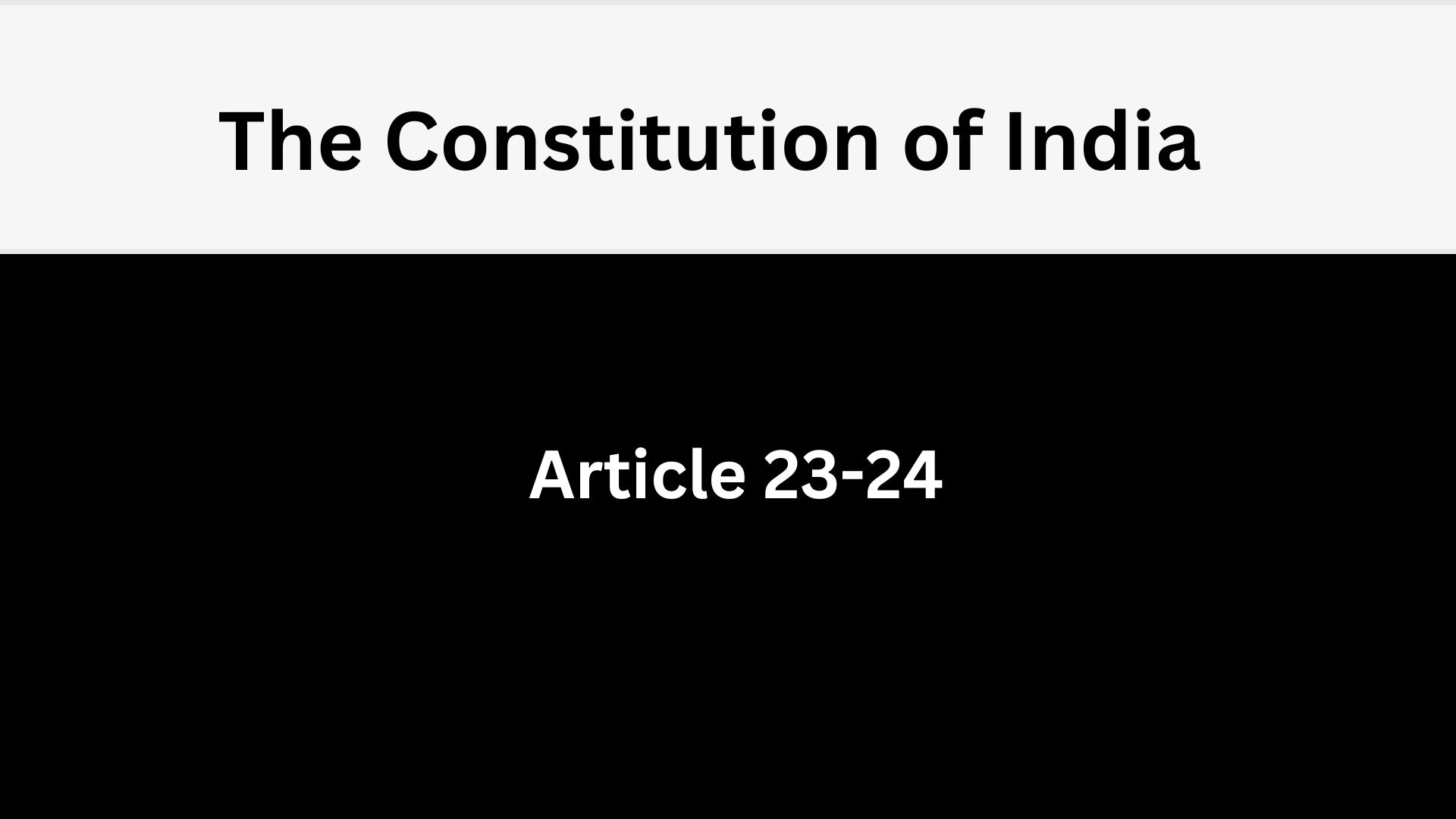| Article | Summary | Highlights |
|---|---|---|
| 23 | Prohibition of traffic in human beings and forced labor | Prohibits human trafficking, begar, and forced labor; State can impose compulsory service for public purposes without discrimination |
| 24 | Prohibition of employment of children in factories, etc. | No child below 14 years to work in factories, mines, or hazardous employment |
Article 23: Prohibition of traffic in human beings and forced labor : Right against Exploitation
- Traffic in human beings and begar and other similar forms of forced labor are prohibited and any contravention of this provision shall be an offense punishable in accordance with law.
- Nothing in this article shall prevent the State from imposing compulsory service for public purposes, and in imposing such service, the State shall not make any discrimination on grounds only of religion, race, caste or class or any of them.
People’s Union for Democratic Rights v. Union of India (1982)
- Issue: The case involved the exploitation of laborers working on the Asian Games project in Delhi. They were not paid minimum wages and were subjected to inhumane working conditions.
- Outcome: The Supreme Court ruled that forced labor includes not just physical force but also economic compulsion. The contractors were directed to pay the minimum wages.
Bandhua Mukti Morcha v. Union of India (1984)
- Issue: This case addressed the bonded labor system prevalent in some parts of India, where laborers were forced to work to repay debts.
- Outcome: The Supreme Court ordered the release of bonded laborers and directed the government to take steps to eradicate bonded labor and rehabilitate the freed laborers.
Article 24: Prohibition of employment of children in factories, etc.: Right against Exploitation
No child below the age of fourteen years shall be employed to work in any factory or mine or engaged in any other hazardous employment.
M.C. Mehta v. State of Tamil Nadu (1996)
- Issue: The case concerned the employment of children in matchstick factories in Tamil Nadu, which posed significant health and safety risks.
- Outcome: The Supreme Court prohibited the employment of children in hazardous industries and directed the establishment of a fund to support child laborers’ education and welfare.
Salal Hydro Project v. State of Jammu & Kashmir (1983)
- Issue: Children were found to be working in the construction of the Salal Hydro Project, violating Article 24.
- Outcome: The Supreme Court emphasized the importance of strictly enforcing laws prohibiting child labor in hazardous conditions and ordered their immediate release and rehabilitation

